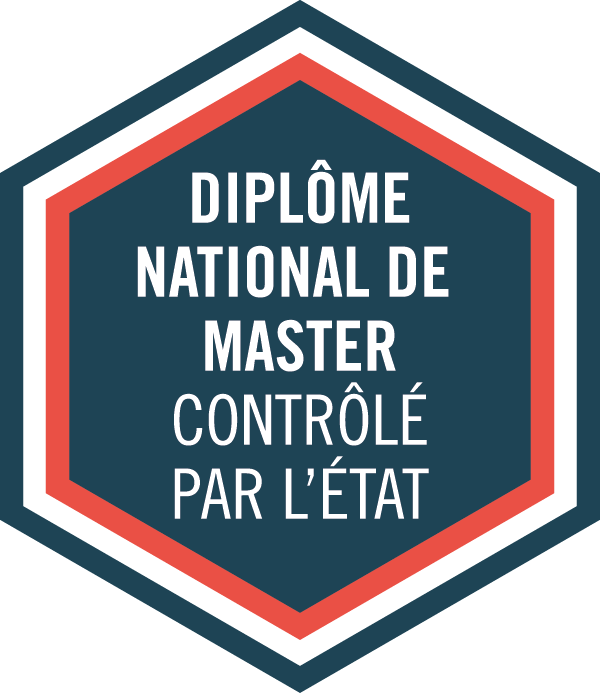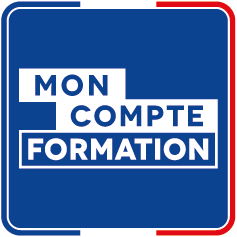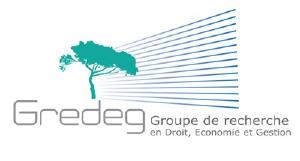PARCOURS - Economics of Innovation for Sustainable Development

Call to actions
Résumé
The aim is to train teacher-researchers in the field of the economics of innovation and sustainable development, as well as industrial and financial managers capable of helping companies meet the challenge of the current dual digital and ecological transit Read moreObjectifs
Details
EUR OF AFFILIATION

Accéder aux sections de la fiche
Introduction
It is a Europe-wide course that ensures articulation between all university cycles, in particular those of the Master-PhD. It focuses on sustainable development, with a strong emphasis on eco-innovations and the analysis of firm, regional and urban dynamics, giving rise to multidisciplinary thinking and insights (economics, management, law). This is an international relevant domain of study, that leverages existing skills and at the same time requires the combination of new competences to support the governance of future innovation projects, with close links between training and research.
The aim of the joint Master's programme is threefold:
- to provide students with high-level skills in analysing the economic dynamics underlying innovation processes in private and public organisations, with a particular focus on strategies linked to new technological challenges such as digital transformation and the ecological transition;
- to provide students with statistical and econometric tools and methods useful for analysing data and technological trends and necessary for informed coordination and planning of corporate innovation strategies compatible with sustainable development objectives;
- to provide students with activities conducive to developing and strengthening their language skills.
Objectives
To better integrate these changes and enter the era of Industry 4.0 and sustainable development, companies need managers who can take decisions in an uncertain environment and implement appropriate operational and managerial solutions. Companies are therefore looking for managers who have a global vision of the changes taking place in industry and who are able to:
- Process and analyse large amounts of data
- Develop strategies in a context of change
- Analyse and manage the main industrial risks
- Design and implement responsible value chains
- Develop sustainable corporate financing
- Design and implement new business ideas
In addition to these specific skills that the joint EISD master's degree aims to train, there are also transversal skills related to the use of tools and software for data processing and analysis, the different methods of study and analysis, or the ability to work in teams under constraints.
The new course opened in September 2024, with the first intake of graduates expected in 2026.
Specificities

Training accessible to disabled people.
Consult website

Training eligible for "MON COMPTE FORMATION"
moncompteformation.gouv.fr</
Partnership
Research center
In agreement with
Admission
Prerequisite
Prerequisites training
- Bachelor's degree in Economics or Business Administration (obtained through initial training or validation of prior learning);
- Another diploma at L3 level after consultation with the Pedagogical Commission.
Target audience
On the one hand, French students with proven academic qualities who are interested in the economics, law and management of environmental innovations and who wish to: either advance to senior management positions in companies of international scope, in order to guide their development by providing them with the keys to sustainable growth; or carry out a doctoral thesis (based on multiple funding: ministerial, European, CIFRE, regional exchange, etc.) at GREDEG, by feeding the skills and resources of the laboratory teams on issues that are at the heart of its current and future concerns.
On the other hand, Italian and foreign students with high academic potential could be attracted and, as the second year of the Masters is planned in Nice, selected to complete a doctorate within GREDEG, in close collaboration with EUR ELMI and in conjunction with the DESPEG doctoral school (ED 513).
Application
Conditions of applications
Applications are submitted on the Mon Master platform for M1 students, and on the ecandidat platform for M2 students.
Consult the procedure
An initial selection based on the candidate's application (eligibility) will lead to an interview with members of the teaching team. This interview is an opportunity to assess the applicant's qualities (interpersonal skills, oral expression, clarity and coherence of the professional project) as well as their motivation.
Conditions of specific applications
See the procedure
Conditions of admission / Conditions of successful application
What is expected at the start of Master 1 :
- Demonstrate social skills and a professional attitude
- Know how to mobilise oral expression
- Demonstrate a high level of editorial skills
- Have analytical and synthesising skills
- Be able to use critical thinking skills and justify arguments
- Demonstrate a proven command of English
- Demonstrate intellectual curiosity to gather and structure relevant information
- Demonstrate sufficient basic knowledge and skills in business management
- Have an advanced level of quantitative skills
- Demonstrate a satisfactory grounding in innovation economics
- Demonstrate sensitivity to and interest in sustainable development issues
Selection is based on the following criteria:
- Knowledge of general economics, mathematics, quantitative techniques, English (CEFR C1 level: test or certificate to be issued)
- Coherence between the course followed and the degree envisaged
- Coherence between the planned degree and the professional project
Program
Content of the academic programm
Master 1 : 756 hours
Master 2 : 680 hours
- Master 1
-
Semester 1 (270 hours)
Unité 1 - Innovation and Sustainable Development (18 ECTS)
Economics of innovation and sustainable development
Entrepreneurship and local development
Innovation, labour market dynamics and inequalities
Unité 2 - Statistics and Econometrics (12 ECTS)
Statistics
EconometricsSemester 2 (486 hours)
Unité 1 - Economics of innovation in the energy sector (6 ECTS)
Economics of innovation in the energy sector
Unité 2 - Finance, strategy and new business models (6 ECTS)
New technologies, business models and sectoral challenges
Finance for innovation and new technological challenges
OPTION 1 : ONE COURSE TO CHOOSE
Min 1 Max 1
Informatics (Python Coding)
Innovation and technology policies
OPTION 2 : ONE COURSE TO CHOOSE
Min 1 Max 1
Business data analytics
Innovation networks and compexity
Planetary boundaries and economic paradigms
Social impact reporting or private public and hybrid organisation - Master 2 (680 hours)
-
Unité 1 - Research design in economics (6 ECTS)
Research design in economics
Unité 2 - Academic presentation and writing (6 ECTS)
Academic presentation and writing
Unité 3 - Finance and sustainable development (6 ECTS)
Finance and sustainable development
Unité 4 - Regulation in the digital era
Regulation and the digital era
Unité 5 - Green Innovation, Knowledge and changes (6 ECTS)
Green innovation, knowledge and changes
Unité 6 - Artificial intelligence and industrial strategies (6 ECTS)
Artificial intelligence and industrial strategies
Unité 7 - Professional and research project (PPR 4) (24 ECTS)
CHOSEN 2 BY STUDENTS
Industrial dynamics
Advanced economics of innovation
Quantitative methods
Data analysis for practicionners
Research workshops "Firms, Innovation and Territories"
Agent-based modelling
Knowledge base and innovation
ONE EXAM CHOSEN BY STUDENTS (1)
Any courses offered by the University of Turin
OPTION : ONE ACTIVITY TO CHOOSE (1)
Innovation complexity Lab
Data analytics for the twin transition
Internship
Professional skills and corporate culture 2
Dissertation (research or professional thesis + defense)
Educationnal team
· University of Torino:
Francesco Quatraro, Full Professor of Economics
Alessandra Scandua, Associate Professor of Economics
Valeria Di Cosmo, Associate Professor of Economics
Roberto Zotti, Associate Professor of Economics
Gianluca Orsatti, Assistant Professor of Economics
Fabrizio Fusillo, Assistant Professor of Economics
Massimiliano Coda Zabetta, Assistant Professor of Economics
Paola Pisano, Associate Professor of Management
Dario Peirone, Associate Professor of Management
Paolo Biancone, Full Professor of Management
· Université Côte d’Azur :
Cécile Cezanne, Lecturer-HDR of Economics
Simone Vannuccini, Full Professor of Economics
Marco Baudino, Lecturer of Economics
Michele Pezzoni, Lecturer-HDR of Economics
Nathalie Lazaric, Research Director of Economics and Management
Patrice Bougette, Full Professor of Economics
Jackie Krafft, Research Director of Economics and Management
Adel Ben Youssef, Lecturer-HDR of Economics
Godefroy De Boiscuille, Lecturer of Private Law
Guilhem Lecouteux, Lecturer-HDR of Economics
Annie Lefebvre, Associate Professor in English
· External professors :
Sandra Rigot, Full Professor of Economics, Université Sorbonne Paris Nord.
Internship(s)
Rhythm
Full time
The first year of the Master will be at the University of Turin and the second year at the Université Côte d'Azur.
Classes take place continuously between October and April each year. The period from April to September is dedicated to the writing and defence of the thesis (research or professional).
Assessment
Acquisition of credits Each credit is definitively acquired once the student has obtained the overall average (average greater than or equal to 10/20). Within each teaching unit, there is a compensation between the components of a teaching unit.
Validation of the year : Each year of the Master program is validated once the student has obtained the overall average (average greater than or equal to 10/20). During each year, there is a compensation between the teaching units.
Eliminatory mark / Threshold mark : A grade lower than 8/20 is eliminatory for PPR 4 (Professional and Research Project 4, Semester 4).
Repeating a Master's degree: "At the end of the first year of the Master's course, the yearly jury decides whether the student should be admitted to continue the specialization, specifying the course of study.
Decision : Admitted to continue in the IES... specialization in specialization(s): 1 or 2 (if several options are offered)".
More information on knowledge assessments
What's next ?
Target skills
RNCP URL of content
Target activities / attested skills
The activities targeted are :
- Manage innovative projects, from design to operational implementation
- Define how to finance the project
- Understand of industrial security issues and techniques
- Manage digital technologies and innovation in relation to their environment and regulatory framework
- Coordinate the implementation of a socio-economic study
Target skills :
- Analyse vast amounts of data
- Develop strategies in a context of change
- Analyse and manage the main industrial risks
- Design and implement responsible value chains
- Develop sustainable corporate financing
- Establish survey techniques and conduct quantitative or qualitative surveys
- Interpret quantitative and qualitative economic and social data
- Analyze and situate academic literature
- Identify and formulate research problem
- Suggest and develop research methodology
- Promote your work to the scientific community through communications and publications
Further studies
It offers the opportunity to students who wish to build a research experience of excellence and paves the way for further studies at doctoral level, in particular through the realisation of a thesis funded by doctoral grants of all kinds (EUR ELMI, Italian Ministry, etc.).
Job opening
Business sector or job
- Risk manager
- Environmental finance specialist
- Head of innovation
- Research and development manager
- Business analyst
- Data manager
- Digital manager
- Innovation and sustainable development strategy consultant
- Business manager
- Economic studies officer
- Digital researcher
- Researcher in the field of ecological transition
- Consultant for regulatory bodies, public authorities or local administrations
- Researcher or teacher – researcher...
Submission
Tuition
Students must also pay tuition fees, which are set by ministerial decree for national degrees. They are indexed to the national consumer price index.
More information about tuition fees is available on this webpage.
If you are returning to school after a professional experience, you can find more information about tuition fees on the website of the Université Côte d'Azur Continuing Education Department.
Conditions of submission
Information about the application process
Find more information for new students in the student booklet.
Contacts
francesco.quatraro@unito.it
cecile.cezanne@univ-cotedazur.fr


















